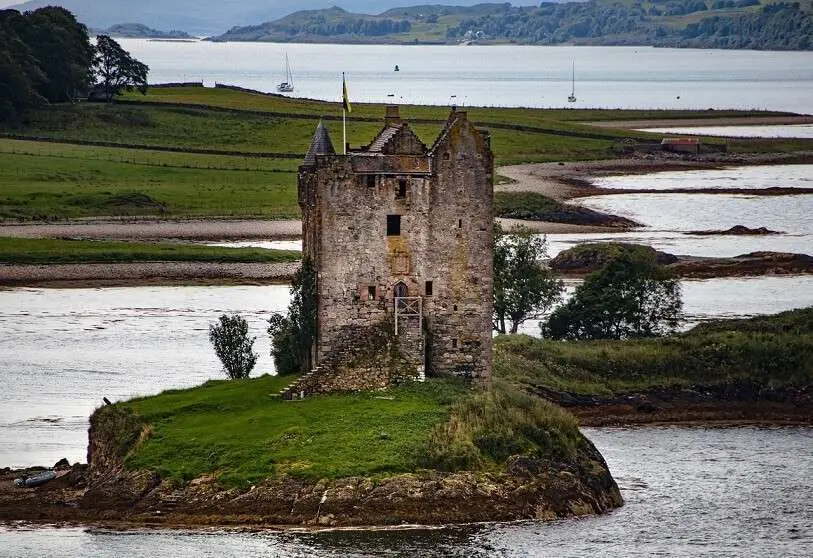For some, Scotland is independent, gloriously so

I am an unabashed lover of Scotland and all things Scottish. It is different from England, gloriously so.
Although bound to its big neighbor under the Act of Union of 1707, Scotland has remained a very separate place. It has its own legal system with demanding rules of evidence that require two witnesses, or lines of evidence, before conviction.
It has authority over most local governments, including some taxing authority and control of its education system. Since “devolution” in 1999, its control over other domestic issues also has increased.
Scotland has the world’s most distinctive men’s attire: the kilt. It has its own sports: shinty, the caber toss and haggis hurling. Others it has bequeathed to the world, like golf, tug of war and curling.
Walking on the streets of Aberdeen or Glasgow, you wouldn’t think you had fetched up in some English town. Just the hard-to-follow dialects will put you right on that one. Prepare yourself by watching the many Scottish series on PBS. One gets used to the different speech after a couple of days in the land of Robert Burns.
The resignation of Scotland’s first minister, Nicola Sturgeon, has focused attention on the perennial issue of Scottish independence. Although it was defeated in a referendum in 2014, it was given new life after the Brexit vote in 2016, when Scottish citizens, unlike those in England, Wales and Northern Ireland, voted to remain in the European Union.
Some thought it would be given that this would boost demands for independence with Sturgeon leading the (bagpipe) band. Instead, support in the opinion polls for independence has dwindled, and Sturgeon’s plan to turn the next general election into a de facto referendum on independence found opposition in her own Scottish National Party.
Sturgeon was wrapped in the flag of Saint Andrew, the patron saint of Scotland. The flag is a diagonal white cross, or saltire, on a blue background. If you disassemble the Union Jack, it is in there.
The original Act of Union reflected the weak economic situation in Scotland then and England’s control of trade in and to the British Isles. More than 300 years later, that is the case again.
The great argument against Scottish independence has always been economic — to say nothing of the difficulty of duplicating Hadrian’s Wall. Scotland’s population of 5.5 million is outbalanced by the English population of 60 million and its trade domination.
But that imbalance hasn’t always seemed that large. In the 19th century, Scotland boomed. It commanded a dominant role in ship construction on the Clyde River, where 20 percent of the world’s steamships were built in the latter part of that century and into the 20th century. Much other heavy industry was situated along the Clyde and other waterways. Scottish entrepreneurs were spread across the world and made their mark. Think Andrew Carnegie.
Of course, Scotland continues to produce some exceptional products. Among my favorites are whiskies, foods like Robertson’s jams, and the ubiquitous and delicious shortbread offerings from Walker’s; and I never forget the unassailable quality of Scottish tweeds and woolens.
Sadly, these and other products aren’t enough to save the Scottish economy, which depends on dwindling North Sea oil and gas, but soon may get a boost from wind farms, which are set to expand there.
Nonetheless, the last block payment from the United Kingdom to Scotland was a hefty $41 billion, emphasizing Scotland’s economic dependence on the union exchequer.
Scotland is a European treasure. Edinburgh, a gem, is one of the great cities of the world often overlooked as visitors are drawn north to the Highlands, or leave the United Kingdom without traveling to Scotland at all.
Edinburgh has it all: art and architecture, literature and music, science and technology, and the centuries-long history of a proud and independent people.
It is also welcoming and set with pubs, fine restaurants, gruesome legends (like the grave robbers when Scottish medical researchers needed cadavers), and a glorious and imposing castle.
Recently my wife and I spent a week in Edinburgh, and we were swept up by its tapestry of wonders. Even though I have been visiting Edinburgh since 1961, I have spent too little time tarrying, walking the streets, savoring the ale, the sounds and the wonder of this great and unique metropolis.
Scotland may be legally and commercially tied to England, but it is brave, bountiful and profoundly different in its ways. Although independence may never happen and may not be desirable, as Burns might have written, “Scotland’s a country for a’ that.”
On Twitter: @llewellynking2
Llewellyn King is executive producer and host of "White House Chronicle" on PBS.

